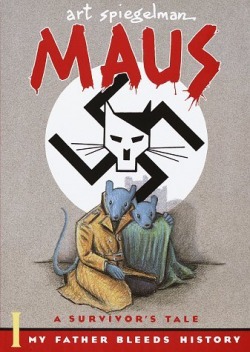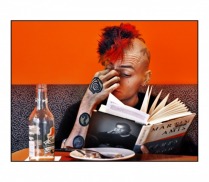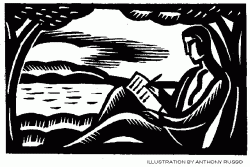Welcome to Mr. Griffith's English Language Enrichment class website
Oral projects on Genocides of the 20th Century

To begin the new year students will research and present an oral report on a Genocide of the 20th century. It will be a group project with both group and individual grades. Each group is to research their topic to establish a knowledge base. Let the five w's of reporting serve as your guide. Your first task is to present the fundamental facts in a concise manner. Secondly explain to the class how your event relates to a concept we have discussed in class (racism, stereotyping, apathy, democratic institutions). This critical analysis is your chance to shine. What is your interpretation of the facts? What suggestion or predictions or thoughts do you offer on the larger topic of genocide and human nature. Presentations will last approximately ten minuets and should include both visual aids and the use of technology (para normal, podcast, movie maker, power point). A rubric has been provided.
The Holocaust
The eight grade is learning about the Holocaust. In Spanish, Language Arts and English Language Enrichment Classes students will be studying The Holocaust. In Mr. Poole's class they will be reading the Dairy of Anne Frank and in ELE they will be reading Maus. Please visit the From The Teacher's Desk page for a rational of why we teach the Holocaust. As always please contact me if you have any questions, concerns or comments. Thank you
Maus: A Survivor's Tale is an autobiography by Art Spiegelman, told in two graphic novels, "My Father Bleeds History" and "And Here My Troubles Begins." It recounts the struggle of Spiegelman's father to survive the Holocaust as a PolishJew and draws largely on his recollections of his experiences. All people are presented as anthropomorphic animals (for example, all Jews are depicted as mice, hence the name Maus which is German for "mouse"). Maus won a special Pulitzer prize in 1992

Editorial Reviews Review
“A loving documentary and brutal fable, a mix of compassion and stoicism [that] sums up the experience of the Holocaust with as much power and as little pretension as any other work I can think of.”
–The New Republic
“A quiet triumph, moving and simple–impossible to describe accurately, and impossible to achieve in any medium but comics.”
–The Washington Post
“Spiegelman has turned the exuberant fantasy of comics inside out by giving us the most incredible fantasy in comics’ history: something that actually occurred…. The central relationship is not that of cat and mouse, but that of Art and Vladek. Maus is terrifying not for its brutality, but for its tenderness and guilt.”
–The New Yorker
“All too infrequently, a book comes along that’s as daring as it is acclaimed. Art Spiegelman’s Maus is just such a book.”
–Esquire
“An epic story told in tiny pictures.”
–The New York Times
Introduction
English Language Enrichment class allows students additional practice and experience in English. The class is designed to promote an appreciation of literature and increase critical reading and writing skills. Class time will be divided between whole-class discussion of short stories and poetry, independent reading and analysis of literature, self-selected literary circle groups and writer's workshop. The class was extremely successful last year in raising students reading and writing skills. I try to individualize instruction to fit individual student's needs. If you begin the year a "good" writer and don't work to improve your writing you will not do well. If you are a "poor" writer and you work hard to improve your writing you will be successful. It is quite possible for the "good" writer to get a lower grade than the "poor" writer who works harder. Hard work = Success not only in this class but in life.
Some major components of English Language Enrichment are:
Daily independent reading The most important 20 minuets of your educational day.

Mr. Griffith reading in 1978 ( 8th grade)
"Reading is Brain Food"
Students will read 20 minuets daily in class. Students are expected to enter class and begin reading. Students will keep a reading log and be held accountable for their reading in various ways during the year. Most of the year student may choose their own book. At times I will assign a type of book, for example biography or nonfiction.
To read the rational for daily reading checkout the "From the teacher's desk" page.
Writer's Workshop

Writer's workshop will be held every third class. After a Mini-lesson (see below), student will write, edit and peer edit their writing. Students will "publish" their writing twice a trimester. Students will work toward utilizing more sophisticated descriptive language through figurative language, varied sentence structures. My goal is for students to develop their own voice as writers, and strive for competence in critical revision of their own writing, as well as that of other students and mine.
Check out the "From the teacher's desk" page to read my perspective on student writing
Check out the "From the teacher's desk" page to read my perspective on student writing
Mini-lessons to Teach Elaboration & Writer's Craft

Mini-lessons are presented during writing workshop. Each mini-lesson is introduced with an explanation of the concept that will be taught. I included examples (writing that works well) and non-examples (writing that doesn't work well). Writing notebooks are used for recording the mini-lessons, for practicing the skills taught in the mini-lesson and will become our writing textbooks. Mini-lessons help transform budding writers into writing wizards. (Can you tell I have been reading Harry Potter with Emma this summer?)
The mini-lessons are adapted from Writing Whizardry by Maity Schrecengost
The mini-lessons are adapted from Writing Whizardry by Maity Schrecengost